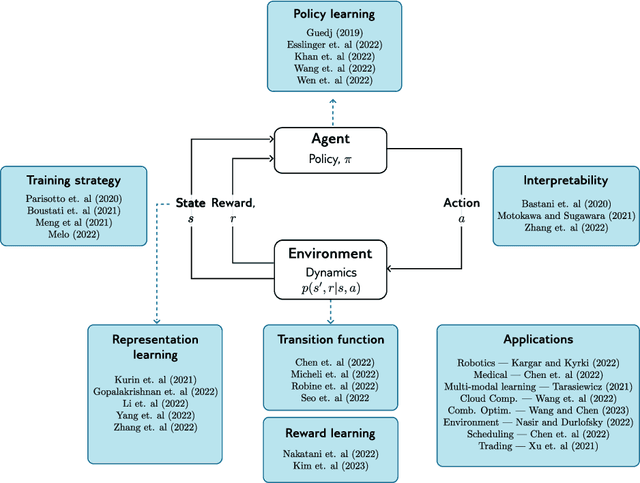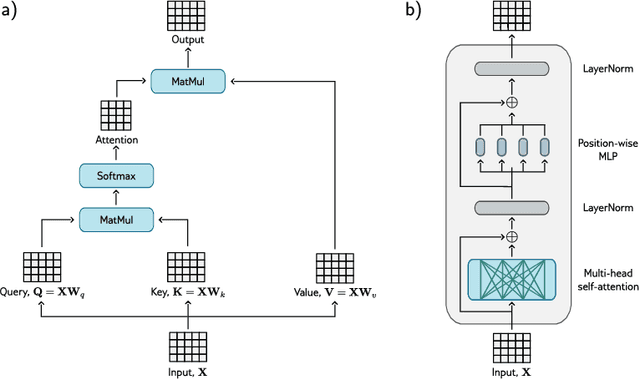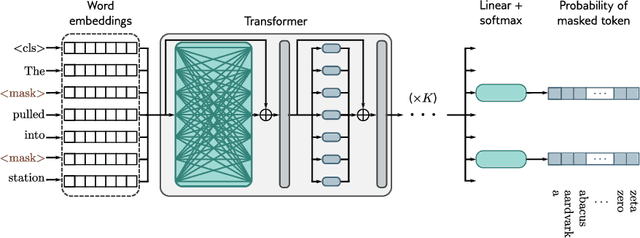Simon J. D. Prince
Transformers in Reinforcement Learning: A Survey
Jul 12, 2023



Abstract:Transformers have significantly impacted domains like natural language processing, computer vision, and robotics, where they improve performance compared to other neural networks. This survey explores how transformers are used in reinforcement learning (RL), where they are seen as a promising solution for addressing challenges such as unstable training, credit assignment, lack of interpretability, and partial observability. We begin by providing a brief domain overview of RL, followed by a discussion on the challenges of classical RL algorithms. Next, we delve into the properties of the transformer and its variants and discuss the characteristics that make them well-suited to address the challenges inherent in RL. We examine the application of transformers to various aspects of RL, including representation learning, transition and reward function modeling, and policy optimization. We also discuss recent research that aims to enhance the interpretability and efficiency of transformers in RL, using visualization techniques and efficient training strategies. Often, the transformer architecture must be tailored to the specific needs of a given application. We present a broad overview of how transformers have been adapted for several applications, including robotics, medicine, language modeling, cloud computing, and combinatorial optimization. We conclude by discussing the limitations of using transformers in RL and assess their potential for catalyzing future breakthroughs in this field.
Ethics and Deep Learning
May 24, 2023


Abstract:This article appears as chapter 21 of Prince (2023, Understanding Deep Learning); a complete draft of the textbook is available here: http://udlbook.com. This chapter considers potential harms arising from the design and use of AI systems. These include algorithmic bias, lack of explainability, data privacy violations, militarization, fraud, and environmental concerns. The aim is not to provide advice on being more ethical. Instead, the goal is to express ideas and start conversations in key areas that have received attention in philosophy, political science, and the broader social sciences.
 Add to Chrome
Add to Chrome Add to Firefox
Add to Firefox Add to Edge
Add to Edge